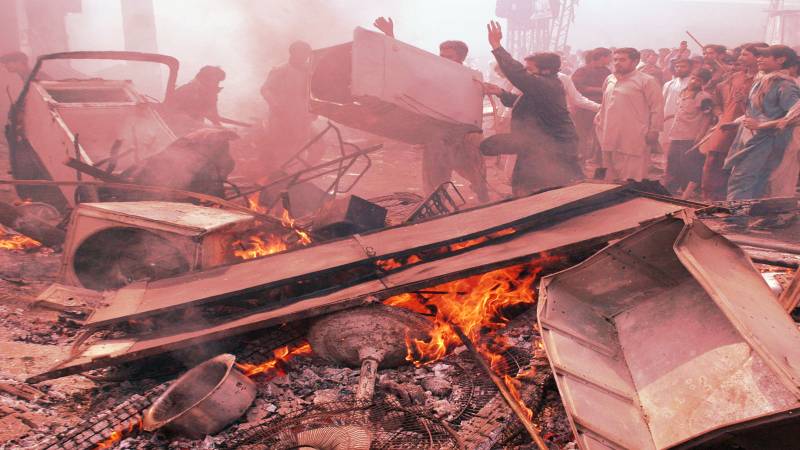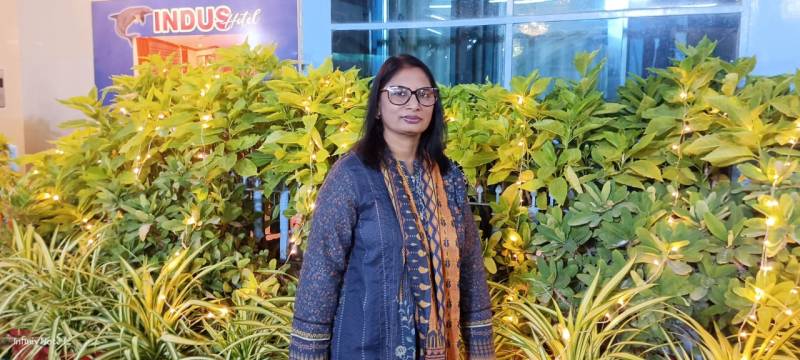
It was a foggy morning. The familiar sounds of roosters crowing and children laughing drifted in from the nearby streets, signaling the beginning of another day in the tranquil village of Shanti Nagar (the city of peace) in Punjab province.
The village came alive with activity as farmers were already hard at work in lush green fields. The air was crisp and refreshing till 7 a.m. when Ushba Barkat saw clouds of smoke rising from the houses besides a nearby bridge.
Fear coiled in her chest as the people spoke of a mob raiding Shanti Nagar. The violence in Shanti Nagar, Pakistan's Punjab province, on February 6, 1997, saw a charged mob destroy 13 churches and about 775 Christian houses and burn some 2,000 copies of the Holy Bible.
The mob nearly decimated the predominantly Christian settlement and its neighboring Tibba village over accusations of desecration of the Holy Quran.
Ushba hurried towards her sleeping family members, her steps quickening with each passing moment, in the panic urging them to flee their mud house. She chose to stay behind with her sister-in-law. Later, they also stepped outside after locking the front door.
“It was like a winter sale frenzy. People were stealing clothes, irons, hoes, or anything they could get their hands on,” said Ushba, who was a 21-year-old fresh graduate back then.

She said, “We kept walking amid the charged crowd and saw them burning our wooden door and throwing explosive material around. The police personnel quietly watched from the back, doing nothing.”
“The miscreants climbed inside our house by stepping on the khurli (hay rack for cattle),” she explained.
“Somebody had freed our goats and buffalos, and they were grazing in the crops. All three rooms and the kitchen were charred. It felt like a nightmare, something you never expect to happen to you,” said Ushba.
"Where do we go from here? How do we rebuild our lives? It feels like everything is lost, and there's no one to turn to for help."
The sisters spent that night under the Sukh Chain (beech) tree in their compound, laying on bedsheets and coverings recovered from the burned rooms.
Driven by the deep emotional turmoil and a desire to change the system, Ushba went on to become a teacher and later an evangelist. After getting a Bachelor of Theology degree, she led the women ministry of the Full Gospel Assembly Church and then pursued her career in teaching for eight years before joining the Ecumenical Commission for Human Development (ECHD), a faith-based charity in Lahore, as a theological officer.
“Becoming a teacher seemed like a natural first step—a way to empower our youth with knowledge and wisdom, to help them navigate a world fraught with division and prejudice,” she said.

“Through education, I hoped to plant the seeds of understanding and tolerance, nurturing a generation capable of rising above the bigotry that had torn our community apart,” she added.
“However, memories returned in August 2023 when Christians witnessed another larger-scale violence on a similar allegation in the Christian neighborhood in Jaranwala, also in Punjab province,” she said.
The continued persecution has left once-simple village women like Ushba scarred for the rest of their lives.
“A sudden noise outside awakens those fears. The scenes of mob attacks flash before my eyes. I feel so alone again. That’s the reason I dedicated my life to God, who protects us in every circumstance,” she mentioned.
For Ushba, the challenges for a woman increase if she belongs to a minority community.
“Accelerating progress is a call to prioritize investment in gender justice by dedicating financial resources, providing training resources, capacity-building opportunities, and actively advocating policies that promote gender equality within churches, communities, and workplaces,” she added.

